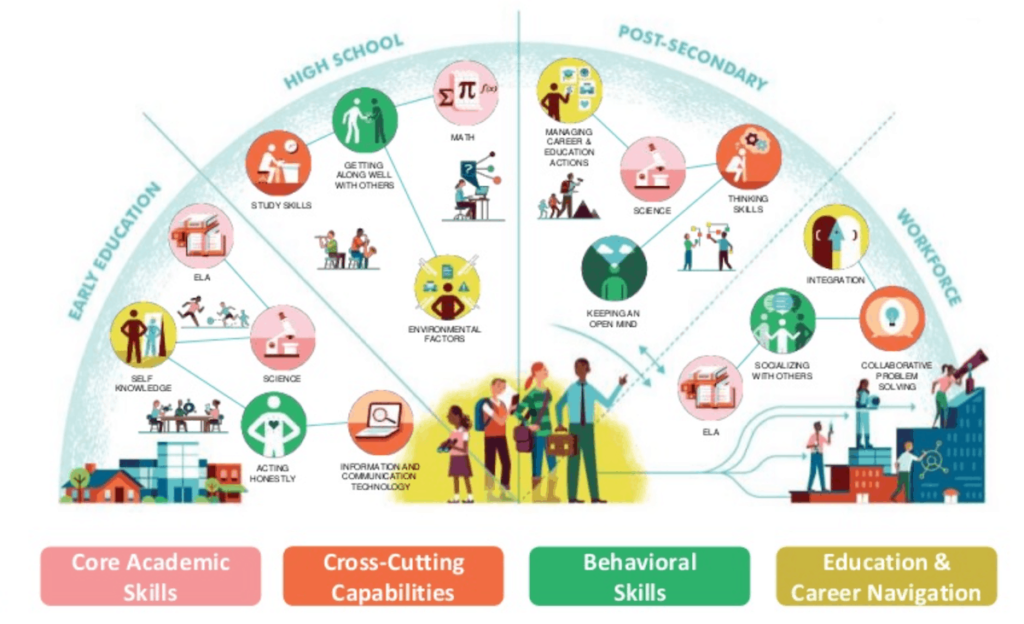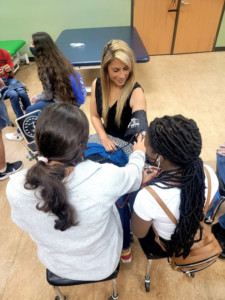ACT Expands Focus from The Test to Holistic Framework

When the pandemic struck the world in the spring of 2020, ACT was impacted by mass cancellations of their well-known admissions assessment. Students preparing for months were disappointed they wouldn’t get a chance to prove their college readiness. Calls started funneling into their Iowa City headquarters and the organization stepped up to work with local agents to serve these students to the best of their ability.
Since June, ACT pivoted and re-engineered its registration system and has since successfully tested 800,000 students. Data from the prior year’s tests were recently released, showing only one-tenth of a percentage point drop in an average score of 20.6 from 20.7 a year before. Their efforts to serve these students and families with a safe testing experience salvaged the opportunity for thousands of students to apply to their school of choice or other post-secondary plans for 2020 graduates.
However, this stop-gap wasn’t the only thing ACT’s interim CEO Janet Godwin and her team had been developing for students were expecting to finish applications, awaiting a nostalgic acknowledgment of being accepted by colleges recognizing their accomplishments. An active board member in her own community’s school district, her relationships between K-12 and higher education have clarified the demand for innovation in order to recenter the student’s learning journey and move beyond their scores on the ACT assessment.
Following conversations with hundreds of educators and families, Godwin said, “…hearing from higher ed, they still value that ACT score because transcripts are more difficult to evaluate now,” even though high school students have been trying desperately to take the ACT to get that familiar data point. “It’s confusing right now—for parents, for students, for those guiding them.”
Beyond ACT’s work, policies around college admissions are being exposed for inequities that hold back large segments of disadvantaged students. Whether these learners and their families are struggling against poverty, trauma, and other systemic issues, Godwin is actively engaged in changing this on behalf of these students through their Center for Equity in Learning, a liaison between such households and the solutions ACT develops and offers schools.
Decades ago the “American College Test” was the impetus for the now 60+-year-old learning organization. However, the assessment is just a sliver of what ACT offers K-12 and higher education. Godwin is leading her team to educate the field about ACT’s solutions that are directly applicable to the pandemic-impacted education landscape as edleaders try to accommodate students (and teachers) traumatized by the global crisis. ACT’s researchers and curricular experts had plans and products underway focused on the broader equity and opportunity gaps for first-generation college students in waiting, now applicable to the all but certain COVID-slide now layered atop the prior-known systemic issues keeping all learners from succeeding.
Five years ago, ACT started building and buying learning and assessment capabilities against a Holistic Framework (featured image). “The holistic framework is our reference architecture for all of the content and indicators we generate,” said Godwin.
Aligned to the framework, the recently released Mosaic Comprehensive Learning Solution is one example of how ACT has answered the call for social-emotional learning (SEL) embedded in adaptive academic work to suit the needs of the individual learner’s journey in a manner accessible to both learners and the educators guiding them.
ACT is making it easier for educators to respond to all the needs of learners with their design efforts to recognize more elements of the learner’s journey. Godwin said, “The students are building their learner’s journey portfolio in a low-stakes way that can be additive to a next experience.”
Even if it means recognizing their assessment won’t always maintain paramount value for colleges, she continued saying, “…maybe in a future state, we don’t need an assessment to validate a student’s learning instead of a four-hour test 50 miles from their home.
With Mosaic and upcoming announcements, ACT has solutions that serve learners as early as kindergarten for those schools making use of their products and services. ACT launched their Learning & Professional Services unit, staffed by seasoned educators versed in professional learning, to train users and increase the fidelity of use while imparting data-informed skills to educators using the suite of tools. This positions the nonprofit to reframe how the ACT brand is perceived as a learning organization by both K-12 and higher education decision-makers.
For more see:
Stay in-the-know with innovations in learning by signing up for the weekly Smart Update.
This post includes mentions of a Getting Smart partner. For a full list of partners, affiliate organizations and all other disclosures, please see our Partner page.






0 Comments
Leave a Comment
Your email address will not be published. All fields are required.